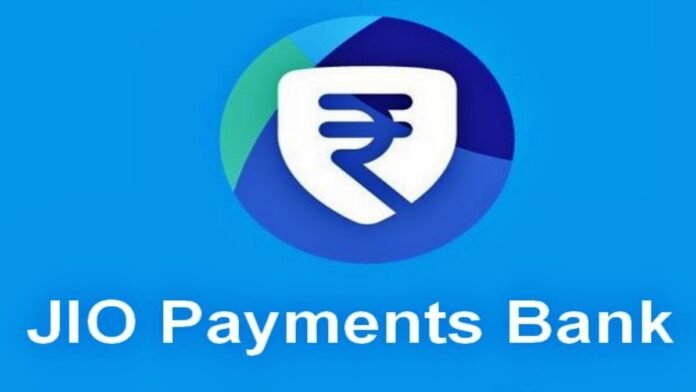
Key Points
- Jio Payments Bank secured contract on October 13, 2025 to implement FASTag ANPR-based Multi-Lane Free Flow (MLFF) toll system at two plazas
- System to be deployed at Shahjahanpur and Manoharpura toll plazas on Gurugram-Jaipur highway
- MLFF technology allows vehicles to pay tolls without slowing down, stopping or using designated toll lanes
- Jio Payments Bank has won 2 out of 5 MLFF contracts awarded so far by IHMCL, demonstrating strong competitiveness
- Bank already manages FASTag-based toll operations at 11 other highway plazas since July 2025
- System integrates RFID, ANPR, DSRC and GNSS technologies for seamless contactless tolling
- Part of NHAI’s pilot project to enable barrier-free vehicular movement on national highways
- MLFF system to be rolled out at about 25 National Highway fee plazas during current financial year
New Delhi: Mukesh Ambani-led Jio Financial Services has made a significant breakthrough in India’s digital highway infrastructure, with its subsidiary Jio Payments Bank Limited (JPBL) securing a prestigious contract on October 13, 2025, to implement cutting-edge barrier-free toll collection technology on one of North India’s busiest highway corridors. The deployment of the FASTag Automatic Number Plate Recognition (ANPR)-based Multi-Lane Free Flow (MLFF) toll system at two critical plazas between Gurugram and Jaipur marks the company’s ambitious entry into next-generation tolling services that promise to revolutionize highway travel across India.
Revolutionary MLFF Technology Eliminates Toll Booth Stops
The Multi-Lane Free Flow system represents a paradigm shift in toll collection methodology, eliminating the decades-old requirement for vehicles to slow down, stop, or queue at designated toll lanes. This advanced electronic toll collection technology can accurately identify, classify and charge vehicles crossing toll plazas in real-time without any disruption to traffic flow, addressing one of the most persistent pain points for highway commuters across India.
According to Jio Payments Bank’s announcement, the MLFF system “leverages a combination of Radio-Frequency Identification (RFID), ANPR, Dedicated Short-Range Communication (DSRC), and Global Navigation Satellite System (GNSS) technologies to ensure smooth, contactless tolling operations across multiple lanes, thereby reducing congestion and improving commuter convenience”. This multi-technology approach ensures redundancy and accuracy, capturing toll payments even from high-speed vehicles traveling at normal highway speeds.
The implementation of MLFF technology is expected to dramatically reduce travel time on the Gurugram-Jaipur stretch by eliminating the bottlenecks that currently form at toll plazas during peak hours. Commuters will experience completely seamless passage through toll points, with the system automatically detecting their vehicle, reading the FASTag, capturing the license plate through ANPR cameras, and deducting the appropriate toll amount—all while vehicles maintain highway speed.
Strategic Toll Plaza Locations
The contract awarded to Jio Payments Bank covers two strategically important toll plazas on the Gurugram-Jaipur National Highway—Shahjahanpur and Manoharpura. This highway corridor serves as a critical artery connecting the National Capital Region with Rajasthan, handling massive volumes of both commercial and passenger traffic daily.
The Shahjahanpur and Manoharpura toll plazas were selected as part of the National Highways Authority of India’s (NHAI) pilot project to test and validate barrier-free vehicular movement on national highways before scaling up the technology nationwide. These locations experience significant congestion during peak hours and festivals, making them ideal candidates for demonstrating the benefits of free-flow tolling technology.
The tender for these toll plazas was issued by the Indian Highways Management Company Limited (IHMCL), the specialized toll-collecting arm of NHAI responsible for managing toll processing operations across India’s expanding national highway network. IHMCL has been tasked with implementing NHAI’s vision of modernizing toll collection infrastructure through technology-driven solutions that enhance user experience while ensuring robust revenue collection.
Competitive Advantage in MLFF Bidding Process
Jio Payments Bank’s success in securing two out of the five MLFF contracts awarded so far demonstrates the company’s strong technical capabilities and competitive positioning in this emerging sector. The bank competed against established financial institutions including ICICI Bank, Airtel Payment Bank, and IDFC First Bank, all of which were identified as frontrunners in the race for IHMCL’s barrierless toll collection contracts.
The competitive bidding process evaluated participants on multiple parameters including technical expertise, financial strength, implementation capabilities, and proposed operational frameworks. Jio Payments Bank’s ability to secure 40% of the contracts awarded to date (2 out of 5) reflects the company’s robust infrastructure, digital capabilities, and operational readiness to handle complex toll management operations.
According to Jio Financial Services’ regulatory filing, “securing the contract to collect and process tolls for an MLFF project is a significant milestone for JPBL, building on the foundation of its FASTag acquisition-based toll processing operations, which commenced in July 2025”. This statement underscores how the company’s recent experience in traditional FASTag operations has positioned it favorably for winning next-generation tolling contracts.
Expanding Toll Collection Footprint
Jio Payments Bank began its journey in the highway toll collection ecosystem in July 2025, when it commenced FASTag-based toll processing operations at 11 toll plazas across different highway stretches in India as an acquirer bank. This initial deployment provided the company with valuable operational experience and demonstrated its capability to manage large-scale, mission-critical payment processing infrastructure.
With the acquisition of toll management rights at the two MLFF road projects on the Gurugram-Jaipur highway, Jio Payments Bank will now be operating toll collection systems at 13 locations nationwide, significantly expanding its presence in India’s highway infrastructure sector. According to Jio Financial Services, “with the acquisition of toll management rights at these two MLFF road projects, JPBL is well-positioned to play a pivotal role in the country’s evolving infrastructure-linked digital payments landscape”.
The company’s rapid expansion from zero toll plazas in June 2025 to 13 locations by October 2025 (including both traditional FASTag and MLFF systems) demonstrates the aggressive growth strategy being pursued by the Mukesh Ambani-led group in the digital payments and infrastructure sectors. This expansion aligns with the broader Digital India initiative and positions Jio Payments Bank as a significant player in the country’s transportation payment infrastructure.
Technology Integration and Operational Framework
The MLFF system being implemented by Jio Payments Bank represents a sophisticated integration of multiple complementary technologies working in concert to achieve seamless toll collection. The primary technology components include:
Radio-Frequency Identification (RFID): The system continues to utilize FASTag, which operates on RFID technology, as the primary identification and payment mechanism. RFID readers installed at the toll plazas communicate with the FASTag affixed to vehicle windshields to capture vehicle and account information.
Automatic Number Plate Recognition (ANPR): High-resolution cameras with advanced image processing capabilities capture vehicle license plates as vehicles pass through the toll zone. This serves as both a primary identification method and a backup verification system to ensure no vehicle evades toll payment.
Dedicated Short-Range Communication (DSRC): This technology enables high-speed wireless communication between the vehicle’s FASTag and the toll plaza’s reader systems, allowing for toll transactions to be processed at highway speeds.
Global Navigation Satellite System (GNSS): Satellite-based positioning technology helps track vehicle movements through the toll zone, providing an additional layer of verification and enabling distance-based tolling capabilities in future implementations.
This multi-technology approach ensures that even if one system experiences temporary issues, the redundant technologies can maintain continuous toll collection operations without disrupting traffic flow.
National Highway Modernization Vision
The deployment of MLFF systems forms a crucial component of NHAI’s broader vision to modernize India’s highway infrastructure and eliminate congestion bottlenecks at toll plazas. According to reports, the MLFF system will initially be rolled out at approximately 25 National Highway fee plazas during the current financial year (2025-26) on highway stretches operated by NHAI.
This phased implementation approach allows NHAI and IHMCL to test, validate and refine the technology and operational processes before scaling up to hundreds of toll plazas nationwide. The pilot project on the Gurugram-Jaipur highway, where Jio Payments Bank will implement its systems, will provide critical learnings about traffic patterns, payment success rates, violation detection mechanisms, and user acceptance of the new technology.
The barrier-free tolling initiative is expected to generate significant benefits for India’s economy and commuters, including reduced fuel consumption (as vehicles no longer need to slow down and accelerate at toll plazas), decreased vehicle emissions, improved highway safety, enhanced traffic throughput, and better user experience for the millions of daily highway users.
Leadership Vision and Strategic Direction
Vinod Easwaran, Managing Director & CEO of Jio Payments Bank, articulated the company’s strategic vision during the contract announcement: “Our expansion into the tolling ecosystem is a natural progression of our mission to digitise everyday payments and build smart financial infrastructure at scale”. He further emphasized that “by leveraging the synergy of digital capabilities with the group ecosystem, we are actively building capabilities to participate in the evolving mobility ecosystem in India”.
This statement reflects Jio Payments Bank’s broader ambitions beyond just toll collection, positioning the company as a comprehensive digital payments infrastructure provider for India’s transportation sector. The reference to “group ecosystem” suggests potential synergies with other Reliance Group companies, including Jio Platforms, which could provide integrated technology solutions for toll management operations.
The company’s focus on digitizing everyday payments aligns with the Indian government’s Digital India initiative and the broader push toward a cashless economy. Toll payments represent one of the highest-volume, routine payment categories in India, with millions of transactions processed daily across the national highway network.
Jio Financial Services Ecosystem
Jio Payments Bank operates as a subsidiary of Jio Financial Services, which is registered with the Reserve Bank of India as a core investment company. Jio Financial Services operates a comprehensive financial services business through multiple customer-facing entities, including Jio Credit Ltd, Jio Insurance Broking Ltd, Jio Payment Solutions Ltd, Jio Leasing Services Ltd, Jio Finance Platform and Service Ltd, and Jio Payments Bank Ltd.
This diversified financial services ecosystem provides Jio Payments Bank with significant advantages in cross-selling opportunities, shared technology infrastructure, and integrated customer experiences. The toll collection operations could potentially be integrated with other financial products such as vehicle loans, insurance products, and fuel payment solutions offered through sister companies within the Jio Financial Services umbrella.
Implementation Timeline and Operational Readiness
While the exact implementation timeline for the MLFF systems at Shahjahanpur and Manoharpura toll plazas was not specified in the announcement, the urgency of NHAI’s pilot project suggests that deployment could begin within the coming months. The systems will need to be fully operational during the current financial year as part of NHAI’s plan to roll out MLFF technology at 25 locations.
Jio Payments Bank’s experience from managing 11 existing FASTag-based toll plazas since July 2025 provides the company with operational readiness and proven capabilities that should facilitate rapid deployment of the MLFF systems. The bank has likely already developed the necessary backend payment processing infrastructure, customer support systems, and operational protocols required for large-scale toll management.
Impact on Digital India and Cashless Economy
The expansion of Jio Payments Bank into next-generation toll collection represents a significant milestone in India’s journey toward a fully digital, cashless transportation infrastructure. The MLFF technology eliminates even the minimal friction associated with traditional FASTag systems, where vehicles must slow down for RFID detection, creating a truly seamless digital payment experience.
This development comes at a time when India is rapidly expanding its national highway network, with thousands of kilometers of new expressways and highways being constructed annually. The deployment of barrier-free tolling infrastructure on these new highways from the outset will ensure that India’s road transportation system is built on a foundation of cutting-edge digital technology.
The success of the MLFF pilot project on the Gurugram-Jaipur highway could accelerate the adoption of this technology across India’s entire national highway network, potentially transforming the daily commute experience for millions of Indians and establishing new standards for highway infrastructure in developing economies worldwide. As Jio Payments Bank continues to expand its toll collection footprint and refine its operational capabilities, the company is positioning itself as a key enabler of India’s smart mobility future.














































